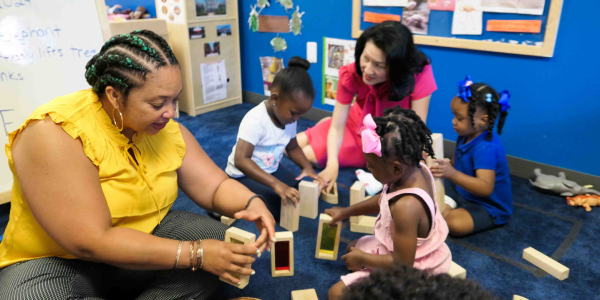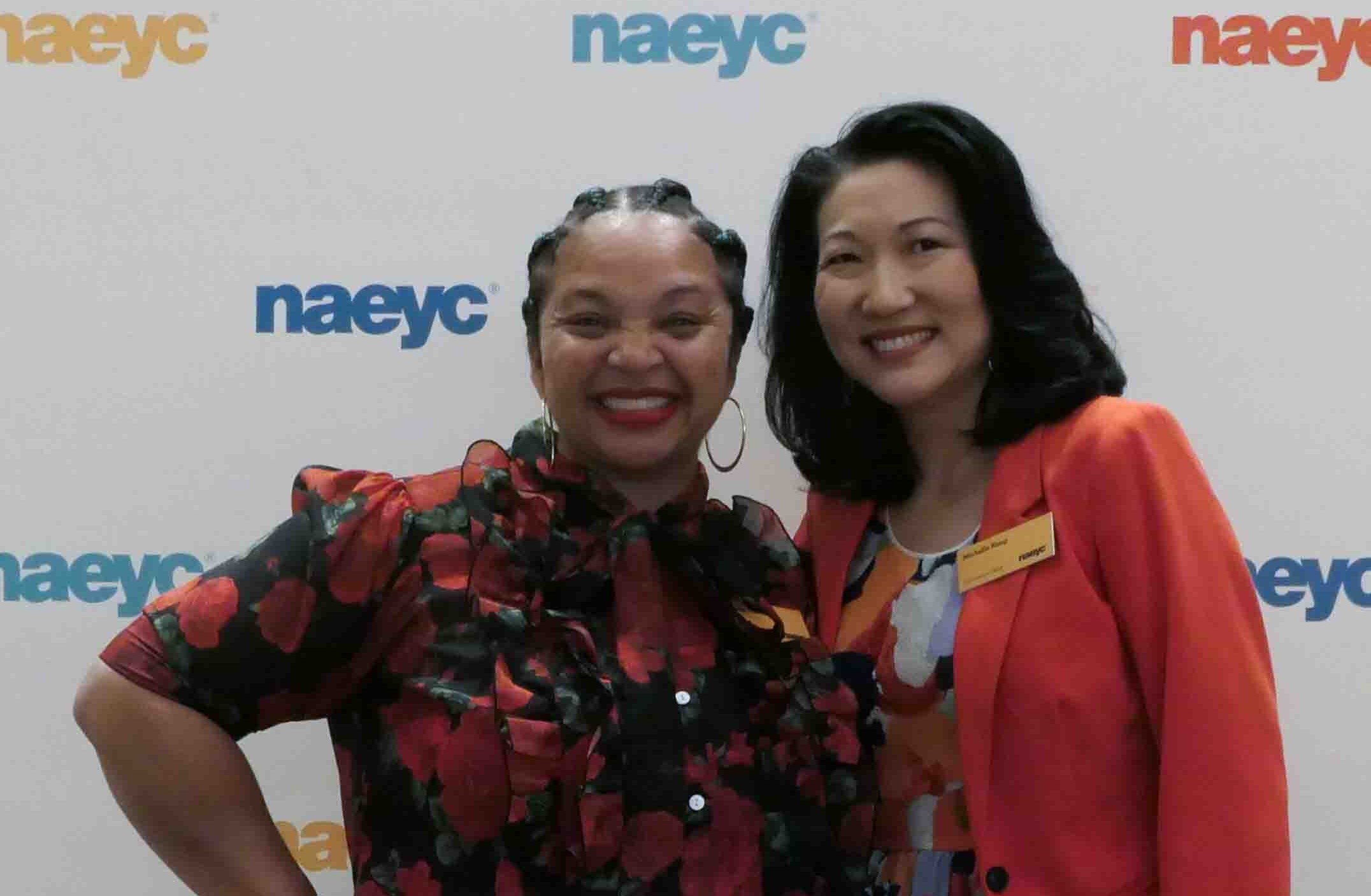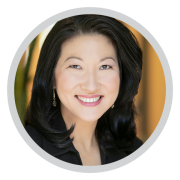Making Connections. Celebrating Children as We Look Toward 100 Years

You are here
As a first-generation Korean American, my past and my family’s traditions mean a great deal to me. For example, we hold doljanchis (돌잔치), or Korean first birthday celebrations, in keeping with tradition. Family and friends gather to share a meal—usually with traditional Korean foods and often at a Korean restaurant. A core part of the celebration is a special ceremony (doljabee, 돌잡이), where our children choose their own destinies by reaching toward one of the objects placed around them. For example,
- a string to indicate long life
- money for wealth
- a book for a scholar, a pencil for a writer, or a ball for an athlete
Last spring, we attended the first birthday celebration of my cousin’s son. While typically these events are held at a Korean restaurant or home, this time our family and friends gathered at an Italian restaurant! Among the traditional first birthday celebration table, we gathered around tables of not rice, but pasta. It looked different than it might have traditionally, but most importantly, we were still present and still celebrating together.
When I became NAEYC’s first Asian American CEO two years ago, I committed to creating a community of belonging. While our more than 60,000 members have different backgrounds, settings, and experiences, we share the core values of elevating the early childhood education profession and supporting young children. This commitment was on display in June, when almost 2,000 members attended the Professional Learning Institute in New Orleans, Louisiana. It will be on display in November, when thousands of you come to Annual Conference in Anaheim, California.
As we shared at the Institute, this is a time of transition—both for the profession and for NAEYC. In 2026, NAEYC will mark 100 years of advocating for high-quality early childhood education. In celebration of this milestone, we are committed to honoring the past, acknowledging the present, and building for the future.
Concerning the past, NAEYC was founded on the vision that each and every child thrives and learns in a society dedicated to ensuring that they reach their full potential. We remain true to this vision. Yet as we celebrate our past, we acknowledge that we may have to leave some elements of it behind as we move into our second century. Toward this end, we are evolving PLI away from a single, standalone conference into different formats that will allow us to better serve our community’s needs. We honor PLI’s legacy but now look forward to ensuring that a broader group of early childhood educators, coaches, advocates, and faculty members can engage with our resources—regardless of their locations, settings, or economic situations. As we begin this new chapter, we welcome members to share feedback with us.
As for the present, we remain committed to holding true to our shared values, which are centered on what is necessary for children to be safe, seen, included, and supported. We continue to elevate educators; to advocate for respect and compensation; and to work toward advancing a diverse, equitable, and prepared early childhood education profession that spans all states and settings.
With an eye to the future, NAEYC is advancing several initiatives designed to help educators, children, and families thrive. These include
- revised position statements: With many thanks to our working groups and Governing Board, draft revisions of the “Code of Ethics for Early Childhood Educators” and the “NAEYC Early Learning Program Standards” are in the public comment stage. We are committed to ensuring that these revisions reflect your voice, expertise, and experiences as well as our shared values.
- early learning program accreditation: NAEYC is working to make it simpler for programs across all settings to equitably access and navigate the accreditation process. This will ultimately create more opportunities for more children—including those from communities of color, multilanguage learners, children with disabilities, and those in low-income communities—to access high-quality early learning.
- membership: Based on what we have heard from members, Affiliates, and other groups, we are working on a new membership model that will allow us to grow our diverse community and further amplify the power of our collective voice and leadership work. Both the membership evolution and updates to early learning program accreditation will be delivered on a new technology platform, designed to support a more streamlined, positive experience in connecting with the community and accessing resources.
- Commission on Professional Excellence: This group of 16 partner organizations and 11 educator members is the evolution of Power to the Profession. NAEYC continues to spearhead this group effort to support equitable, thoughtful implementation of and alignment with the Unifying Framework for Early Childhood Education in states and communities across the nation.
As we near NAEYC’s hundredth anniversary, I’m reminded of something my parents used to say: “Honor the past, acknowledge the present, and build for the future.” NAEYC has been and remains a community of belonging, where we celebrate and honor educators’ and children’s strengths, contexts, and communities (a theme of this issue). We are excited and energized as we continue our commitment to this shared mission and work together to create joy, hope, meaning, and community—both today and beyond.
* * *

It is with great joy that I welcome Tonia Durden as NAEYC’s 2024–2026 Governing Board president. Tonia is well-versed in the early childhood education community, having served as a teacher, teacher educator, researcher, birth-to-age 5 program coordinator, and early childhood extension specialist. In these roles, she has had direct engagement with children, families, communities, and the individuals who serve and teach young children. Tonia is committed to elevating our profession and the conversations we have about it. I am excited to work with her.
Photographs: NAEYC
Copyright © 2024 by the National Association for the Education of Young Children. See Permissions and Reprints online at NAEYC.org/resources/permissions.
Michelle Kang serves as NAEYC’s Chief Executive Officer.
